Joseph Conrad Collection
1 Comment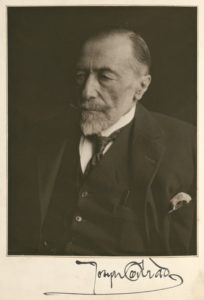 Joseph Conrad was born to Polish parents in 1857 in Berdychiv, which is part of modern Ukraine. As a young man he spent 19 years as a merchant marine sailing on French and British ships. His years at sea and the various persons he encountered served as inspiration for events and characters in his subsequent literary career. English was his third language (after Polish and French), which imbues his writing with a distinct style.
Joseph Conrad was born to Polish parents in 1857 in Berdychiv, which is part of modern Ukraine. As a young man he spent 19 years as a merchant marine sailing on French and British ships. His years at sea and the various persons he encountered served as inspiration for events and characters in his subsequent literary career. English was his third language (after Polish and French), which imbues his writing with a distinct style.
The Joseph Conrad collection contains manuscripts, letters, documents, and photographs. Of particular significance are manuscripts for several of his novels, including Almayer’s Folly (1895), Chance (1913), and Victory (1915). His outgoing correspondence includes letters to Henry D. Davray, Norman Douglas, Henry James, Alfred A. Knopf, and others.
Incoming correspondence has been excluded from this online collection due to copyright concerns.
This collection was digitized as part of Project REVEAL (Read and View English & American Literature).
Go to: http://hrc.contentdm.oclc.org/
Joseph Conrad ~ Nostromo
Author’s Note
“Nostromo” is the most anxiously meditated of the longer novels which belong to the period following upon the publication of the “Typhoon” volume of short stories.
I don’t mean to say that I became then conscious of any impending change in my mentality and in my attitude towards the tasks of my writing life. And perhaps there was never any change, except in that mysterious, extraneous thing which has nothing to do with the theories of art; a subtle change in the nature of the inspiration; a phenomenon for which I can not in any way be held responsible. What, however, did cause me some concern was that after finishing the last story of the “Typhoon” volume it seemed somehow that there was nothing more in the world to write about.
This so strangely negative but disturbing mood lasted some little time; and then, as with many of my longer stories, the first hint for “Nostromo” came to me in the shape of a vagrant anecdote completely destitute of valuable details.
As a matter of fact in 1875 or ‘6, when very young, in the West Indies or rather in the Gulf of Mexico, for my contacts with land were short, few, and fleeting, I heard the story of some man who was supposed to have stolen single-handed a whole lighter-full of silver, somewhere on the Tierra Firme seaboard during the troubles of a revolution.
On the face of it this was something of a feat. But I heard no details, and having no particular interest in crime qua crime I was not likely to keep that one in my mind. And I forgot it till twenty-six or seven years afterwards I came upon the very thing in a shabby volume picked up outside a second-hand book-shop. It was the life story of an American seaman written by himself with the assistance of a journalist. In the course of his wanderings that American sailor worked for some months on board a schooner, the master and owner of which was the thief of whom I had heard in my very young days. I have no doubt of that because there could hardly have been two exploits of that peculiar kind in the same part of the world and both connected with a South American revolution.
Full text: http://www.online-literature.com/conrad/nostromo/
Kenneth Ligda ~ On Joseph Conrad ~ Nostromo: https://modernism.research.yale.edu/Nostromo
Comments
One Response to “Joseph Conrad Collection”
Leave a Reply
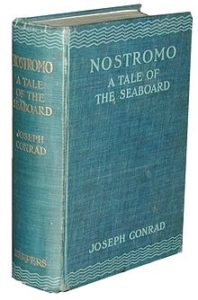



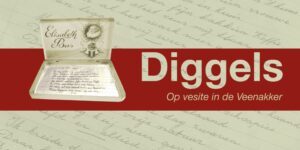
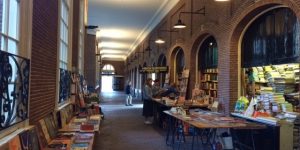
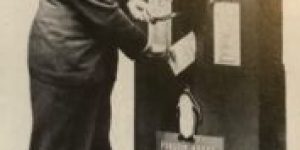

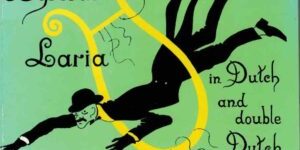
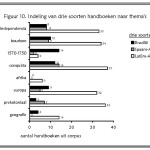
January 26th, 2017 @ 3:52 pm
Reading this book right now — I’m somewhere into the second half. Demolishes the myth that globalization is something new: the small 19th century community around which the story revolves is composed of Englishmen, Spanish, Italians, French, Basques, Americans, Germans, Mestizos, and Amerindians. The toll of materialist capitalism is so well narrated — and symbolized by the silver mine. The silver mine which IS ‘our man’ (nostromo): a thing we all covet, and that brings about our downfall. Moths to the flame.